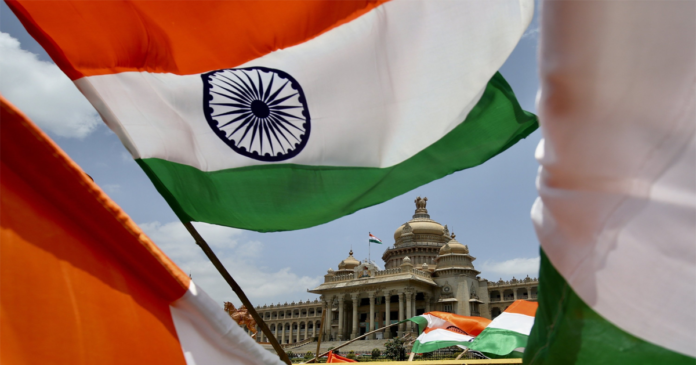“Controversy Surrounding Indian President’s Banquet Invites and the Nation’s Name Dispute”
Is India changing its name to Bharat?: Invites to a banquet outside the G20 conference that Indian President Droupadi Murmu sent out with the title “President of Bharat” have sparked rumours that the government is planning to rename the nation.
WHAT IS THE DISPUTE OVER THE NAME OF INDIA?
By tradition, invitations sent out by Indian constitutional authorities usually include the names India and Bharat when they are written in English or Hindi, respectively.
But Murmu was referred to as the President of India on the G20 dinner invitations, which were written in English.
When prompted by Reuters, a representative of the president’s office stated that they did not wish to comment on the matter.
Critics claimed that the inclusion of the term Bharat in the invitations was a sign that the administration of Prime Minister Narendra Modi was pressing for the name to be legally changed given their opposition to Hindi and their support for the government’s Hindu-nationalist philosophy.
In an effort to aid India in escaping what it has dubbed a “slavery mentality,” Modi’s nationalist Bharatiya Janata Party (BJP) government has started renaming colonial towns and cities over time.
WHAT IS THE COUNTRY’S OFFICIAL NAME?
The South Asian superpower is known as India in English, but it is also known as Bharat, Bharata, and Hindustan in Indian languages.
We, the people of India… is the first phrase in the preamble of the English version of the constitution, and “India, that is Bharat, shall be a Union of States” is the second.
Except for the section identifying the names of the country, the constitution replaces India with Bharat anywhere it appears in Hindi. This section reads, “Bharat, that is India, shall be a Union of States.”
A constitutional amendment would be necessary to change India’s name to just Bharat, and both houses of parliament would need to approve it by a two-thirds majority.
Will the name actually be changed by the government?
Some people find the controversy’s timing to be telling.
Just a few days prior to the incident, the government unexpectedly convened a special five-day session of parliament later this month without providing a schedule. Unconfirmed rumours that a name change would be proposed and approved during the session were sparked by the action.
Although it hasn’t been confirmed, members of the government and the dominant BJP have indicated that Bharat should supersede India in terms of name recognition.
The BJP’s ideological ancestor, the Rashtriya Swayamsevak Sangh, has insisted on calling the nation Bharat from its founding.
An inquiry for comment was not immediately answered by a government spokeswoman.
WHAT ARE THE HISTORIES BEHIND BOTH NAMES?
Both names have been used for over 2,000 years.
While some Bharat advocates assert that British colonisers gave “India” its name, historians contend that the term dates back centuries before colonial authority.
The Indus River, also known as Sindhu in Sanskrit, is where India originates. Even prior to Alexander the Great’s invasion of India in the third century BCE, travellers from as far away as Greece would refer to the area southeast of the Indus River as India.
Even older, the name Bharat appears in ancient Indian texts. However, other academics claim that rather than being a term of geography, it was employed to describe sociocultural identity.

